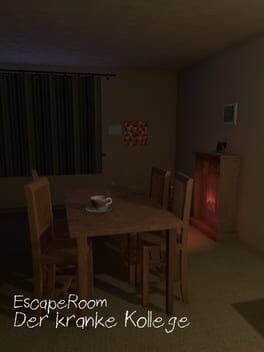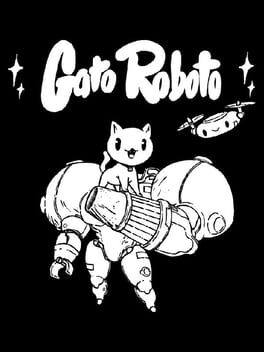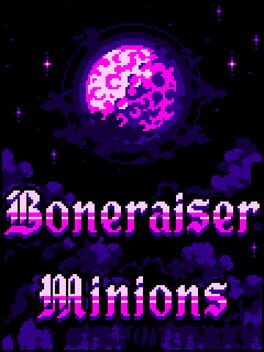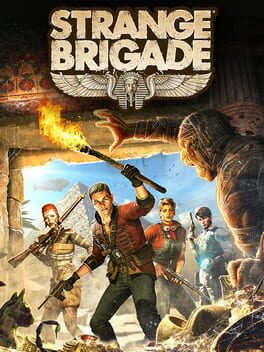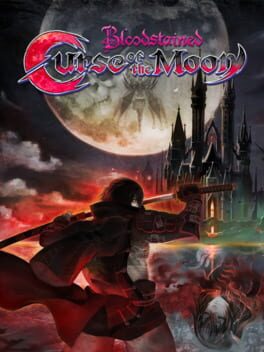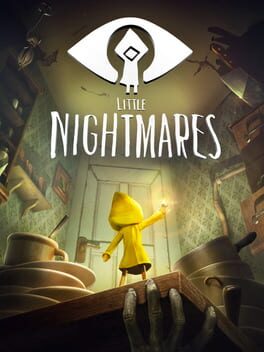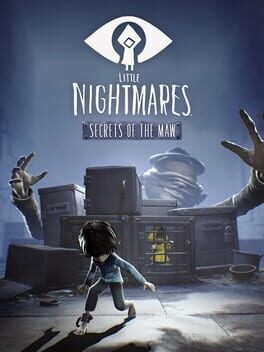Y0ur1
Some puzzles are really great, most are stupidly far-fetched or flat-out nonsensical. Additionally, the hint system often only tells you how to start a puzzle rather than solve it, which is completely pointless.
Also the poor performance and high gigabyte requirement for what amounts to a short and kind of ugly escape room makes me think this might be a bitcoin miner of some kind. There's better escape room-type games out there in any case, so don't waste your time with this one unless you really love the genre and need more immediately, I suppose.
Also the poor performance and high gigabyte requirement for what amounts to a short and kind of ugly escape room makes me think this might be a bitcoin miner of some kind. There's better escape room-type games out there in any case, so don't waste your time with this one unless you really love the genre and need more immediately, I suppose.
2019
The game Metroid: Zero Mission wishes it could be. Jokes aside, the gameplay is smooth and fun, and a lot of the tedium from the old metroid games has been removed here (e.g. locking progression behind a limited resource; instead rockets are on a cooldown which is far more intuitive). I like the bond between our protagonist and her owner a lot too. The story is (appropriately) silly, but it's not like I expected a narrative masterpiece. The game does lack the atmosphere that oozes from the Metroid games, but partly makes up for that in infectious charm.
Not allowing you to continue the save file to 100% the game is unacceptable though, and left a super sour taste in my mouth. Why not simply spawn us right before the boss fight? Why put in extra effort to alter my save file so I cannot play on it anymore? It's a genuinely baffling game design decision.
That being said, if you like Metroid and it's on sale, give it a shot! It's short and sweet, and I think most Metroid fans can get a kick out of it.
Not allowing you to continue the save file to 100% the game is unacceptable though, and left a super sour taste in my mouth. Why not simply spawn us right before the boss fight? Why put in extra effort to alter my save file so I cannot play on it anymore? It's a genuinely baffling game design decision.
That being said, if you like Metroid and it's on sale, give it a shot! It's short and sweet, and I think most Metroid fans can get a kick out of it.
2022
I respect the sheer amount of content pumped into this but the visual clutter makes it hard to appreciate what is going on, and that can make consecutive runs kind of boring after a while. When everything starts to blend together minions and enemies start to lose their identity in a way weapons in Vampire Survivor or other contemporaries in the genre never did.
2016
A very beautifully drawn game with some pacing issues. The first story is solid, but the second is a little too slow paced for my liking. However, the third story and especially the epilogue are really great and took this game from around a 3 star to a 3.5 easily.
Emma Recniczek's story not only confronting the inequality many women faced (and still face) in the field of science and higher education, while also doubling as a trans allegory was so wonderfully written, I found myself deeply engrossed in their character while only spending about ~1 hour with them. I also enjoyed the subtle inclusion of a gay character in their mathematician friend (or atleast that is how I read him), as I felt it fit in well with the idea of 'hidden identities,' and it further signalled how ridiculous the prejudice was because here is a character who is completely accepted by-- and ingrained itno the group (on the basis of being a male theorist) but who would probably just as soon be kicked out as Emma if they knew he was gay. It highlights the complete irrelevance of sexuality and gender identity when it comes to your scientific ability.
The Epilogue is a fantastic example of simple, but poignantly effective writing. Showing how each of the previous three characters have impacted these soon-to-be-soldiers in one way or another was already a pleasant bow on the various stories, but the revelation that these men are going off to war (facing a high likelihood of death) for various reasons and the conflicting points-of-views from these characters (that all make sense) was very engaging writing. I especially found the snide remarks from the art thief at Wilma's patriotic brother very interesting, as the thief has spent his entire life struggling to stay alive and here he is faced with a young lad eager to throw his life away for his country. It seems to me that he is angry someone is so careless with their life and ignorant to what pain is (especially the attempted desertion by him not much later was very striking to me).
While this game wasn't always the most engaging work of art, I am very glad I stuck with it. The third and fourth chapter are really wonderful short stories, and the way the various stories interconnect in small ways is strangely rewarding (especially the epilogue). I hope the team behind this continues to create wonderful stories like these, though admittedly I do hope the gameplay itself will be a little more varied and engaging next time around.
Emma Recniczek's story not only confronting the inequality many women faced (and still face) in the field of science and higher education, while also doubling as a trans allegory was so wonderfully written, I found myself deeply engrossed in their character while only spending about ~1 hour with them. I also enjoyed the subtle inclusion of a gay character in their mathematician friend (or atleast that is how I read him), as I felt it fit in well with the idea of 'hidden identities,' and it further signalled how ridiculous the prejudice was because here is a character who is completely accepted by-- and ingrained itno the group (on the basis of being a male theorist) but who would probably just as soon be kicked out as Emma if they knew he was gay. It highlights the complete irrelevance of sexuality and gender identity when it comes to your scientific ability.
The Epilogue is a fantastic example of simple, but poignantly effective writing. Showing how each of the previous three characters have impacted these soon-to-be-soldiers in one way or another was already a pleasant bow on the various stories, but the revelation that these men are going off to war (facing a high likelihood of death) for various reasons and the conflicting points-of-views from these characters (that all make sense) was very engaging writing. I especially found the snide remarks from the art thief at Wilma's patriotic brother very interesting, as the thief has spent his entire life struggling to stay alive and here he is faced with a young lad eager to throw his life away for his country. It seems to me that he is angry someone is so careless with their life and ignorant to what pain is (especially the attempted desertion by him not much later was very striking to me).
While this game wasn't always the most engaging work of art, I am very glad I stuck with it. The third and fourth chapter are really wonderful short stories, and the way the various stories interconnect in small ways is strangely rewarding (especially the epilogue). I hope the team behind this continues to create wonderful stories like these, though admittedly I do hope the gameplay itself will be a little more varied and engaging next time around.
2018
Completed 4 different runs of this game, and while I enjoyed most of them I have to say that the Zangetsu solo run on Veteran was not very fun in the later levels. It is really rewarding to get faster and faster at these levels, although I do wish there was a difficulty between 'watch your limited number of lifes disappear as you get knocked into the void constantly' and 'baby's first videogame,' but otherwise it is pretty good for what it is.
2017
Oh hell naw they turned Little Nightmares into Pikmin...
In terms of gameplay, this was a great step in the right direction. The first chapter is rather mediocre but the second and third are excellent and big upgrades in terms of puzzles and platforming from the base game. While Little Nightmares coasts on atmosphere, Secrets of the Maw trades memorable villains (most villains are briefly re-used from base LN, though generally in a less succesful fashion than their appearances in the base game) for genuinely engaging gameplay, some decently complex puzzles and rewarding progression with some genuine scares. The base game never really unsettled me because it was so brightly lit and blatantly linear (half the rooms could be cleared by simply running quickly from left to right, maybe some climbing thrown in. They were also very obviously and repeatedly divided up into different "sub-levels" where enemies just give up chasing despite being right behind you because you made it to the next "level"), but the more restrained use of horror actually made the game more creepy to me, because the scares were so much more unexpected (e.g. turning my flashlight on in a dark room and suddenly being face-to-face with the Blind Man). Arguably only the first chapter only misses the mark in this regard, where the "scares" are obvious and also extremely back-loaded, showing up predominantly in the final 20-ish minutes as you get constantly chased by the old person in the sewers.
All in all, if the sequels take the iconography and penchant for creating iconic monsters and locations from the base game and the gameplay from the DLC, they will easily be modern classics in my eyes.
In terms of gameplay, this was a great step in the right direction. The first chapter is rather mediocre but the second and third are excellent and big upgrades in terms of puzzles and platforming from the base game. While Little Nightmares coasts on atmosphere, Secrets of the Maw trades memorable villains (most villains are briefly re-used from base LN, though generally in a less succesful fashion than their appearances in the base game) for genuinely engaging gameplay, some decently complex puzzles and rewarding progression with some genuine scares. The base game never really unsettled me because it was so brightly lit and blatantly linear (half the rooms could be cleared by simply running quickly from left to right, maybe some climbing thrown in. They were also very obviously and repeatedly divided up into different "sub-levels" where enemies just give up chasing despite being right behind you because you made it to the next "level"), but the more restrained use of horror actually made the game more creepy to me, because the scares were so much more unexpected (e.g. turning my flashlight on in a dark room and suddenly being face-to-face with the Blind Man). Arguably only the first chapter only misses the mark in this regard, where the "scares" are obvious and also extremely back-loaded, showing up predominantly in the final 20-ish minutes as you get constantly chased by the old person in the sewers.
All in all, if the sequels take the iconography and penchant for creating iconic monsters and locations from the base game and the gameplay from the DLC, they will easily be modern classics in my eyes.
